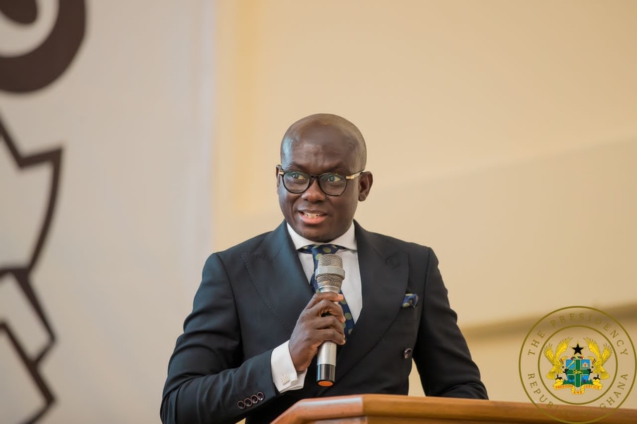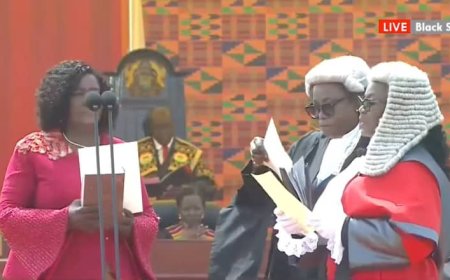AG Dame takes on Speaker over vacant MP seats

Accra, Ghana - October 22, 2024 - Attorney General Godfred Dame has filed a statement with the Supreme Court, contesting Speaker of Parliament Alban Bagbin's ruling that four MPs must vacate their seats.
The dispute arose after three MPs declared their intention to run as independent candidates in the December 2024 elections. Bagbin's decision was challenged by Majority Leader Alexander Afenyo-Markin, who argued that the MPs should retain their seats until the end of the current parliamentary term.
Key Points:
- Attorney General Godfred Dame submits statement to Supreme Court
- Challenges Speaker's decision to declare four parliamentary seats vacant
- Dispute centers on MPs running as independent candidates in 2024 elections
- Supreme Court issues stay of execution on Speaker's ruling
- Minority caucus claims Majority status despite court ruling
AG's Argument:
Dame asserts that filing nominations for future elections does not automatically disqualify MPs from holding their current seats. He emphasizes that an MP's seat can only be vacated during the ongoing parliamentary term if they switch parties or officially declare themselves as independent.
Broader Implications:
The case has significant implications for Ghana's parliamentary system and the December 2024 elections. The Supreme Court's decision will provide clarity on the constitutionality of the Speaker's actions.
Next Steps:
The Supreme Court will review the Attorney General's statement and determine the constitutionality of the Speaker's decision. The outcome will shape the future of Ghana's parliamentary landscape.
In his statement dated October 21, 2024, Godfred Dame argued that merely filing nominations for future elections does not automatically disqualify MPs from holding their current seats.
“Filing nomination to contest an upcoming election for a place in a future Parliament does not lead to a vacation of the seat.”
According to him, all branches or agencies of government, including Parliament, are subject to the Constitution and the Supreme Court’s judicial review powers to determine the constitutionality of their actions and decisions.
“Every arm of Government or agency of the State, including Parliament, is subject to the Constitution and to the Supreme Court’s judicial review powers of determining the constitutionality of actions and decisions by that arm or agency.
“Consequently, an order, decision, ruling or determination by the Speaker of Parliament, in contravention of and/or ultra vires to the Constitution, will render such order, decision, ruling or determination, amenable to the jurisdiction of the Supreme Court.”
The Attorney General requested that the Supreme Court interpret the Constitution as a whole, ensuring that all relevant parts are considered in relation to the current case
“Respectfully, in coming to the conclusions above, we will invite the Court to read the Constitution as a whole giving effect to the various parts connected with the subject matter of the instant action.
“When this is done, there will be no doubt that “Parliament” as used in article 97 refers to a session of Parliament or the life of a particular Parliament and nothing more.”
Source: Lead News Online
























































